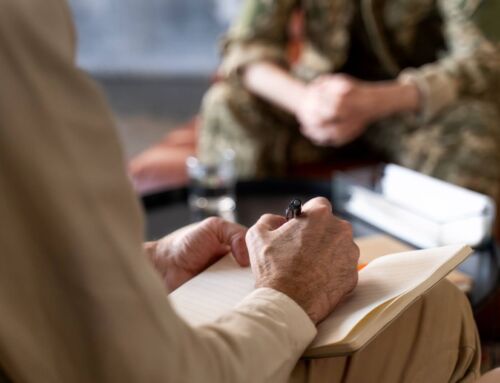Addiction recovery is not a one-size-fits-all process. For individuals who need more structure than outpatient programs but do not require 24/7 care provided by inpatient treatment, partial hospitalization programs (PHPs) offer an ideal solution. These programs provide a highly structured treatment environment during the day, allowing participants to return home at night, making them a flexible yet intensive option for those on the road to recovery.
In Ocean County, NJ, PHPs such as those offered at Overcome Wellness & Recovery deliver a comprehensive blend of therapy, education, and medical support. This article explores the structure and benefits of PHPs and why they are a critical bridge between inpatient and outpatient care.

What is a Partial Hospitalization Program (PHP)?
A partial hospitalization program (PHP) is a form of addiction treatment that provides intensive care and support during the day while allowing participants to maintain some level of independence by returning home in the evenings. PHPs are ideal for individuals who:
- Require a structured and supportive environment during the day
- Are transitioning out of inpatient care but are not ready for traditional outpatient programs
- Have a stable and supportive home environment conducive to recovery
PHPs are designed to address both the physical and psychological aspects of addiction, offering a comprehensive approach that includes therapy, medical care, and education. Participants typically spend several hours a day, five to seven days a week, at the treatment center, engaging in various therapeutic activities and support sessions.
The Structure of a Partial Hospitalization Program
PHPs follow a structured schedule that incorporates a range of evidence-based therapies, educational workshops, and medical care. While the specific structure may vary between treatment centers, most PHPs include the following components:
1. Comprehensive Assessments and Individualized Treatment Plans
Before beginning a PHP, participants undergo a thorough assessment to determine their specific needs and recovery goals. This evaluation may include:
- Medical assessments to address any physical health concerns
- Mental health evaluations to identify co-occurring disorders
- Discussions about personal challenges and triggers related to addiction
Based on the assessment, the treatment team creates a personalized treatment plan tailored to the individual’s unique needs. This plan serves as a roadmap for their recovery journey, outlining the therapies and support services they will receive.
2. Daily Therapy Sessions
Therapy is a cornerstone of PHPs, helping individuals address the underlying causes of their addiction and develop strategies for long-term recovery. Common types of therapy in PHPs include:
- Individual Therapy: One-on-one sessions with a licensed therapist provide a safe space to explore personal challenges, set goals, and work through triggers.
- Group Therapy: Group sessions offer peer support and foster a sense of community, allowing participants to share experiences and learn from others.
- Family Therapy: Addiction affects the entire family, and family therapy helps rebuild trust and improve communication among loved ones.
3. Evidence-Based Treatments
PHPs employ evidence-based therapies to ensure participants receive effective and research-backed care. These treatments may include:
- Cognitive-Behavioral Therapy (CBT): CBT helps participants identify and change negative thought patterns and behaviors associated with addiction.
- Dialectical Behavior Therapy (DBT): DBT focuses on emotional regulation and coping skills, helping participants manage stress and prevent relapse.
- Motivational Interviewing (MI): MI encourages individuals to build intrinsic motivation for recovery by exploring their reasons for change.
4. Medical Support and Monitoring
For individuals recovering from addiction, medical support is often a critical component of treatment. PHPs provide access to medical professionals who can address withdrawal symptoms, manage medications, and monitor overall health. This level of care ensures that participants remain physically stable and supported as they progress through their recovery journey.
5. Educational Workshops
Education is a key aspect of PHPs, empowering participants with the knowledge and skills they need to maintain sobriety. Workshops may cover topics such as:
- Understanding the science of addiction
- Developing healthy coping mechanisms
- Building stress management techniques
- Preventing relapse and managing triggers
- Improving communication and relationship skills
By equipping participants with practical tools, PHPs help them navigate the challenges of recovery with confidence.
6. Relapse Prevention Planning
Relapse prevention is a core focus of PHPs, ensuring participants are prepared to handle high-risk situations and maintain their sobriety after completing the program. This may include:
- Identifying personal triggers and high-risk scenarios
- Developing strategies to cope with cravings and stress
- Creating a personalized relapse prevention plan
- Building a strong support network for ongoing accountability
Who Can Benefit from a PHP?
Partial hospitalization programs are suitable for individuals at various stages of their recovery journey. They may be a good fit for:
- Those Transitioning from Inpatient Care: PHPs provide a structured step-down from residential treatment, helping individuals adjust to life outside of a 24/7 facility.
- Individuals Needing Intensive Support: PHPs offer a high level of care for those who need more support than traditional outpatient programs but do not require inpatient treatment.
- People with Co-Occurring Disorders: PHPs often include dual-diagnosis treatment, addressing both addiction and mental health conditions such as depression or anxiety.
- Participants with a Stable Home Environment: Since participants return home at night, PHPs are best suited for those with a supportive and secure living situation.
The Benefits of Partial Hospitalization Programs
PHPs provide several advantages for individuals seeking addiction recovery:
1. Comprehensive Care Without Full-Time Commitment
PHPs offer the intensity of inpatient care while allowing participants to maintain some level of independence. This makes them an excellent option for individuals balancing recovery with work, school, or family responsibilities.
2. Flexibility and Accessibility
The daytime structure of PHPs allows participants to practice the skills they learn in therapy in real-life settings. This real-world application helps reinforce positive behaviors and coping strategies.
3. Holistic Approach to Recovery
PHPs address the physical, psychological, and emotional aspects of addiction, ensuring that participants receive well-rounded care that promotes overall well-being.
4. Community and Peer Support
Group therapy sessions and recovery support meetings foster a sense of belonging and accountability, helping participants build strong connections with others who share similar experiences.
Choosing a PHP in Ocean County, NJ
When selecting a partial hospitalization program, it’s important to consider the program’s approach, services, and values. Overcome Wellness & Recovery in Ocean County, NJ, offers a leading PHP designed to support individuals at every stage of their recovery journey. Key features include:
- Personalized Treatment Plans: Tailored care to meet the unique needs and goals of each participant.
- Dual-Diagnosis Treatment: Comprehensive support for co-occurring mental health conditions and addiction.
- Experienced Staff: A team of licensed therapists, medical professionals, and addiction specialists dedicated to compassionate care.
- Evidence-Based Therapies: Proven treatments to address the root causes of addiction and promote long-term recovery.
- Faith-Based Support: For those seeking spiritually aligned care, the program incorporates Jewish values and traditions.
Start Your Recovery with a PHP in Ocean County, NJ
Partial hospitalization programs provide a vital bridge between inpatient and outpatient care, offering intensive support and flexibility for individuals seeking addiction recovery. With structured therapy, medical support, and education, PHPs empower participants to rebuild their lives and maintain long-term sobriety.
If you or a loved one is ready to take the next step toward recovery, contact Overcome Wellness & Recovery in Ocean County, NJ. Our partial hospitalization program is designed to provide the care and support you need to achieve lasting healing and a brighter future.




